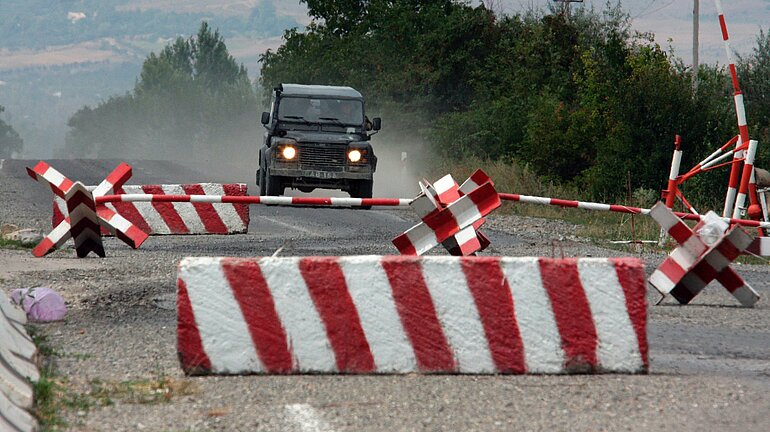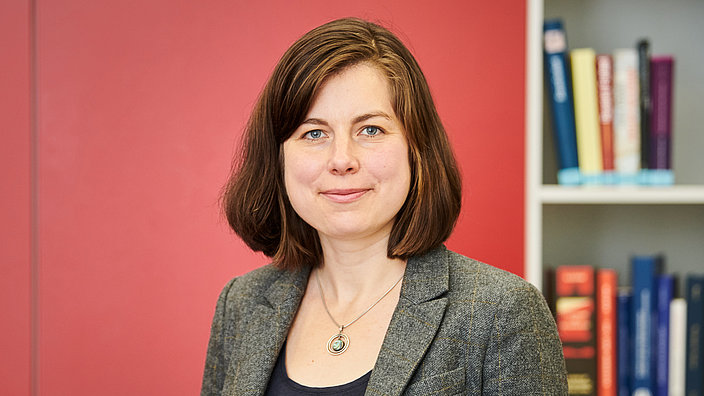Conflict and Cooperation in Eastern Europe: The Consequences of the Reconfiguration of Political, Economic, and Social Spaces since the End of the Cold War (KonKoop)
Conflict and Cooperation in Eastern Europe: The Consequences of the Reconfiguration of Political, Economic, and Social Spaces since the End of the Cold War (KonKoop)

The research network “Cooperation and Conflict in Eastern Europe: The Consequences of the Reconfiguration of Political, Economic, and Social Spaces since the End of the Cold War” (KonKoop) started work in April 2022 and comprises six institutions from across Germany: the Centre for East European and International Studies (ZOiS), Leibniz Institute for East and Southeast European Studies (IOS) in Regensburg, Leibniz Institute for Regional Geography (IfL) in Leipzig, Friedrich Schiller University Jena (FSU Jena), Eberswalde University for Sustainable Development (HNEE), and the Leibniz Centre for Contemporary History (ZZF) in Potsdam. Various international partners are also associated with the network. The project is funded by the Federal Ministry of Research, Technology and Space (BMFTR) for a period of 48 months and is coordinated by Professor Gwendolyn Sasse, Dr Sabine von Löwis, Dr Julia Langbein and Dr Kerstin Bischl at ZOiS.
Project description
In this project, we look at conflict and cooperation in Eastern Europe since the end of the Cold War. Nowhere else in the world have there been so many wars of secession – some of them unresolved to this day – and newly founded states. Russia’s war of aggression against Ukraine is the latest shocking example. The research network will examine various conflict constellations and dynamics of cooperation in Eastern Europe, Southeast Europe, Central Asia and the Caucasus. Our aim is to understand and explain interactions and integrate the expertise available in Germany.
The project involves several research teams working in five thematic areas in order to identify how conflicts arise in Eastern Europe, which actors are involved and which factors contribute to escalation and de-escalation, but also which conditions guarantee security or enable cooperation. KonKoop is an interdisciplinary project and draws on expertise from the fields of political science, geography, history and environmental sciences. Five doctoral students and three post-docs will collaborate with established researchers from the network and its partner institutions on detailed studies and comparative qualitative and quantitative analyses.
Two (data) laboratories will also be established to make the results of the research available to the professional community: the Multi-method Data Lab based at ZOiS is an interdisciplinary platform that processes and links quantitative and qualitative research data. It also tests novel methods for analysing them. The Multi-perspective Laboratory for Peace and Conflict Cartography located at the IfL explores how cooperation partners and conflict parties represent their specific interests by means of maps. On this basis it develops and tests visualisations (maps, infographics or artistic graphic (online) tools) that represent conflicting or multiple interests.
The project’s thematic fields are: post-imperial nation-building processes; religious and ethnic diversity; economic (dis)integration; environmental change and ecological resources; and interactions and interdependencies between conflict and cooperation.
Key questions
- Under what circumstances do political reconfigurations like the dissolution of the Soviet Union or Yugoslavia trigger violent conflicts?
- What role do ethnic or religious identities and economic interests play in the emergence or resolution of conflicts?
- What are the effects of environmental change and resource scarcity?
- What factors influence the scope for peace negotiations and the implementation of peace agreements?
- How can security in Europe be reconceptualised and institutionalised in future?

![[Translate to Englisch:]](/fileadmin/media/_processed_/4/3/csm_Sasse_2022__Riedl__27effde830.jpg
)
![[Translate to Englisch:]](/fileadmin/media/_processed_/7/6/csm_Julia_Langbein__Annette_Riedl__34b85e2bd3.jpg
)
![[Translate to Englisch:]](/fileadmin/media/_processed_/3/2/csm_Loewis__Annette_Riedl__d15ffb8229.jpg
)

![[Translate to Englisch:]](/fileadmin/media/_processed_/4/9/csm_Boretskii_2023__Riedl__df2588065b.jpg
)




![[Translate to Englisch:]](/fileadmin/media/_processed_/4/4/csm_Eschment_2022__Riedl__bdadbc4042.jpg
)


